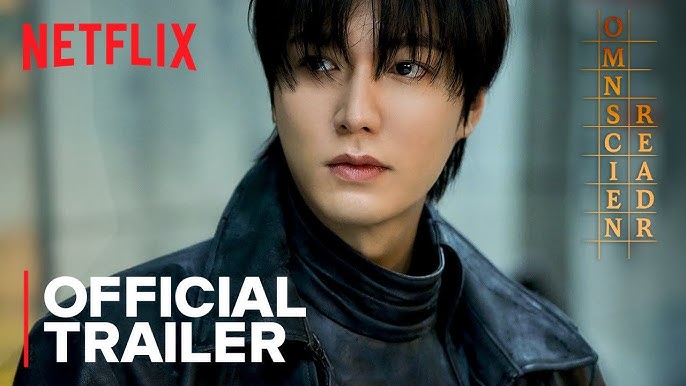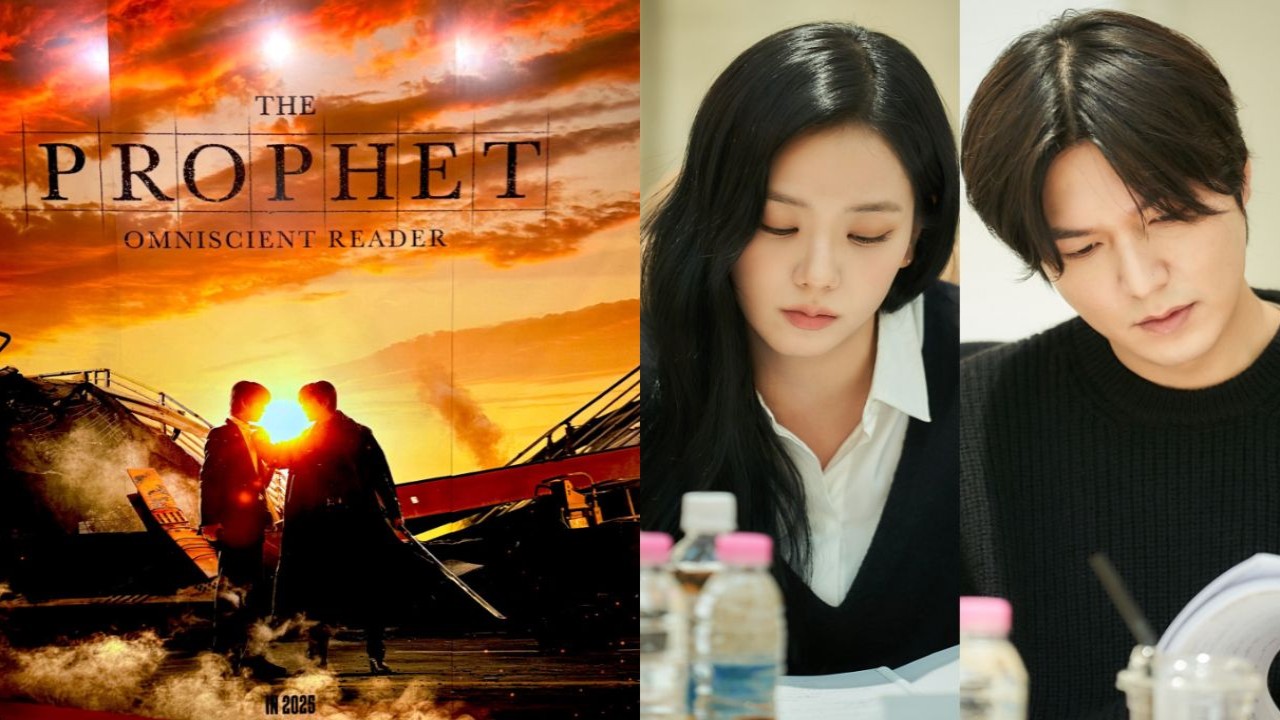When an Ordinary Reader Becomes The Prophet: Exploring Kim Dokja's Transformative Journey in Omniscient Reader
Imagine picking up a novel that's been your companion for years, only to discover that you've somehow become its most pivotal character. That's exactly what happens to Kim Dokja in Omniscient Reader's Viewpoint (ORV), but his transformation goes far beyond just being thrust into his favorite story. When Kim Dokja takes on the role of "The Prophet," the entire narrative shifts into something profound, questioning the very nature of fate, sacrifice, and what it means to save a world that might not want to be saved.

The Making of a Reluctant Messiah
Kim Dokja didn't set out to become anyone's savior. He was just a guy who found solace in reading "Three Ways to Survive the Apocalypse" – a web novel that had become his escape from a pretty ordinary, somewhat lonely life. But when the fictional apocalypse becomes terrifyingly real, Kim Dokja finds himself with knowledge that makes him invaluable: he knows how the story ends.
What makes his journey to prophethood so compelling isn't some grand moment of divine calling. Instead, it's a gradual realization that his unique position as the sole reader of the completed novel makes him something unprecedented. He becomes The Prophet not through divine intervention, but through the weight of narrative knowledge and the crushing responsibility that comes with it.
The beauty of this transformation lies in how naturally it unfolds. Kim Dokja starts by using his knowledge to survive, then to help others survive, and eventually finds himself making increasingly sacrificial choices for the greater good. It's a character arc that feels earned rather than imposed, and that's what makes it so emotionally resonant.
Religious Symbolism That Actually Works
ORV doesn't throw around religious imagery carelessly. When Kim Dokja embraces his role as The Prophet, the story weaves in biblical and mythological parallels that enhance rather than overshadow the narrative. Think less heavy-handed allegory and more thoughtful exploration of what it means to bear the burden of foreknowledge.
The prophet archetype in ORV serves multiple purposes:
- Knowledge as Burden: Like biblical prophets who saw the future and were tormented by it, Kim Dokja carries the weight of knowing how terrible things can become
- Sacrifice and Salvation: His journey mirrors classic messianic narratives, but with the twist that he's trying to rewrite the ending he knows is coming
- The Price of Intervention: Every time Kim Dokja changes the story, there are consequences – showing that even prophetic knowledge comes with costs
What's particularly brilliant is how the story uses these religious undertones to explore very human themes. Kim Dokja's prophet powers aren't about performing miracles; they're about the terrible loneliness of being the only one who truly understands what's at stake.
The Prophet's Dilemma: Fate vs. Free Will
Here's where ORV gets really interesting philosophically. Kim Dokja knows the "correct" path through the apocalypse because he's read the story, but every time he acts on that knowledge, he changes the narrative. It's like being handed a map to salvation and watching it rewrite itself with every step you take.
This creates a fascinating tension at the heart of his prophet role. Traditional prophets deliver messages about predetermined fate, but Kim Dokja is actively trying to change the fate he knows is coming. He's not just predicting the future; he's fighting against it, even when that means making increasingly personal sacrifices.
The story explores this through several key moments where Kim Dokja has to choose between following the "safe" path he knows from the novel and taking risks to save people who weren't meant to survive in the original timeline. Each choice moves him further from being a passive reader to becoming an active prophet, reshaping destiny itself.

The Loneliness of Omniscience
One of the most heartbreaking aspects of Kim Dokja's prophet journey is how isolating it becomes. He knows things he can't fully explain to his companions without revealing the artificial nature of their reality. He sees futures they can't imagine and carries the weight of decisions that could doom or save entire timelines.
This isolation is what makes his relationships with characters like Yoo Joonghyuk so complex and compelling. Kim Dokja sees Yoo Joonghyuk not just as he is, but as all the versions of himself across multiple regressions. It's like trying to love someone while simultaneously knowing every mistake they'll make and every tragedy they'll endure.
Why Kim Dokja's Prophet Arc Resonates So Deeply
The genius of ORV's approach to the prophet character lies in how it grounds fantastical concepts in very relatable emotional territory. Most of us have felt the burden of knowing something difficult that others don't, or struggled with the question of how much we should intervene in situations we see heading toward disaster.
Kim Dokja's transformation into The Prophet takes these universal human experiences and amplifies them to cosmic proportions. His journey asks questions that hit close to home:
- If you could save everyone, but it required sacrificing yourself completely, would you?
- How much of your own identity are you willing to lose to become what others need?
- Is it better to preserve a flawed world or risk everything trying to create a perfect one?
These aren't abstract philosophical puzzles in ORV – they're the daily reality of Kim Dokja's existence as The Prophet. And watching him grapple with them makes for some of the most emotionally devastating and beautiful storytelling in modern Korean webtoons.
The Prophet's Powers: More Burden Than Blessing
When Kim Dokja fully embraces his role as The Prophet, his abilities go far beyond simple future sight. He gains the power to manipulate narrative probability, to step between storylines, and to sacrifice parts of himself to rewrite reality. But these powers come with a terrible price: the more he uses them, the less "Kim Dokja" he becomes.
This is where ORV really distinguishes itself from other power fantasy narratives. Kim Dokja's prophet abilities aren't about becoming stronger or more important – they're about gradually erasing himself to create space for others to exist. It's a form of power that demands the ultimate sacrifice: not just dying for others, but ceasing to exist so completely that even the memory of you begins to fade.
The story handles this concept with remarkable sensitivity, showing how Kim Dokja's loved ones struggle with watching him disappear piece by piece, even as his actions save countless lives. It's a meditation on the nature of sacrifice that goes beyond simple heroic death to something far more complex and heartbreaking.
Rewriting Destiny, One Story at a Time
Perhaps the most fascinating aspect of Kim Dokja's prophet powers is how they operate through narrative manipulation rather than traditional magic. He doesn't cast spells or wield divine weapons – he changes stories. This reflects ORV's deeper themes about the power of fiction and storytelling to shape reality.
When Kim Dokja intervenes in the apocalypse, he's essentially editing the story in real-time, inserting new plotlines, developing side characters into major players, and constantly rewriting the ending. It's a form of prophecy that's uniquely suited to a story about stories, and it makes every use of his power feel both miraculous and deeply personal.
The Emotional Core: Love Disguised as Sacrifice
Underneath all the cosmic storytelling and religious symbolism, Kim Dokja's prophet arc is fundamentally a love story. Not romantic love, necessarily, but something deeper: the love of someone who has found meaning in caring for others, even fictional others who became real.
His transformation into The Prophet is driven by his profound connection to the characters he "read about" for years. They weren't just entertainment to him – they were companions during his loneliest times, sources of hope when he had little else. When given the chance to actually save them, to give them better endings than the cruel ones he read, he can't help but pour everything he has into that effort.
This emotional foundation is what prevents Kim Dokja's prophet journey from feeling cold or abstract. Every use of his power, every sacrifice he makes, comes from a place of genuine affection for the world and people he's trying to save. It makes his increasing disappearance not just tragic, but deeply moving.
_PgWIpFy.jpg)
Impact on Korean Webtoon Storytelling
ORV's handling of the prophet archetype has had a significant influence on how Korean webtoons approach religious and mythological themes. Rather than shying away from spiritual concepts or treating them as purely aesthetic elements, ORV demonstrates how these themes can be woven into modern storytelling in ways that feel authentic and emotionally resonant.
The success of Kim Dokja's prophet arc has encouraged other creators to explore similar territory – using traditional religious and mythological frameworks to examine contemporary questions about purpose, sacrifice, and the weight of responsibility. It's opened up space for more nuanced discussions about faith and destiny in popular media.
More importantly, it's shown that audiences are hungry for stories that take big philosophical questions seriously, that don't shy away from the genuine pain and complexity of trying to do good in an imperfect world. Kim Dokja's journey as The Prophet proves that you can tackle profound themes without sacrificing accessibility or emotional impact.
Conclusion: The Prophet We Didn't Know We Needed
Kim Dokja's transformation into The Prophet in Omniscient Reader's Viewpoint represents something special in contemporary storytelling. It's a character arc that takes the weight of knowledge, the burden of responsibility, and the price of love seriously, wrapping them in a narrative that's both fantastical and deeply human.
What makes his prophet journey so compelling isn't the power he gains, but what he's willing to lose. In a media landscape often focused on characters who accumulate strength and importance, Kim Dokja's arc moves in the opposite direction – toward erasure, sacrifice, and a kind of love so complete it's willing to disappear entirely.
For readers who've followed Kim Dokja from that first moment when his ordinary life collided with his favorite story, watching him become The Prophet feels both inevitable and heartbreaking. It's the perfect culmination of a character who started by finding meaning in others' stories and ended by giving everything to ensure those stories could continue.
Whether you're new to ORV or a long-time fan, Kim Dokja's prophet arc offers something rare: a genuinely transformative character journey that earns every emotion it evokes. In a world full of chosen ones and reluctant heroes, he stands out as something different – a prophet who chose himself for sacrifice, and in doing so, chose to save everyone else.
Have you experienced Kim Dokja's prophet transformation in ORV? What moment in his journey hit you hardest? Share your thoughts about how this unique take on the prophet archetype resonated with you, and let's discuss what makes this character arc so unforgettable in the world of Korean webtoons.
